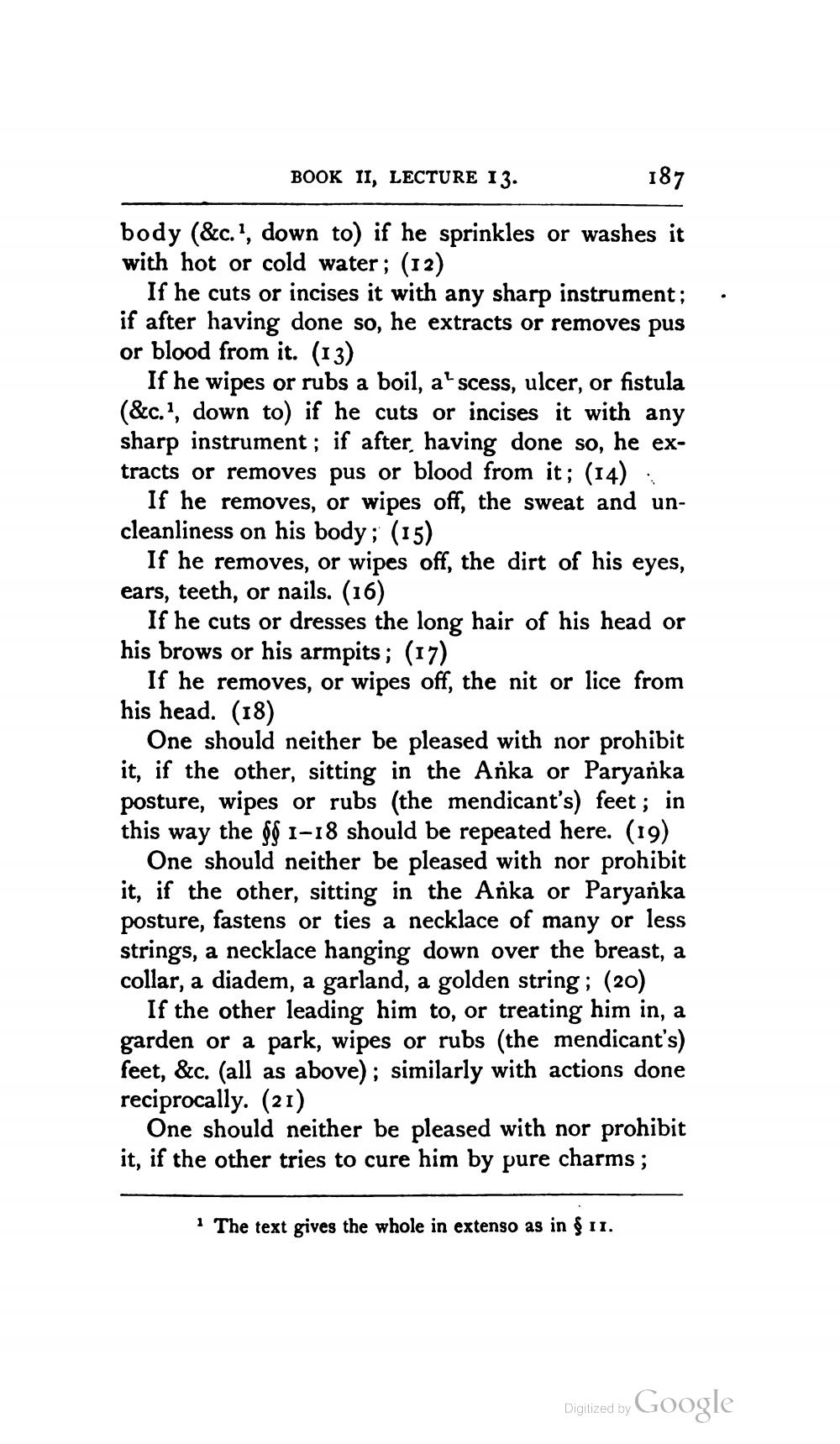________________
BOOK II, LECTURE 13.
187
.
body (&c. ?, down to) if he sprinkles or washes it with hot or cold water; (12)
If he cuts or incises it with any sharp instrument; if after having done so, he extracts or removes pus or blood from it. (13)
If he wipes or rubs a boil, a' scess, ulcer, or fistula (&c.", down to) if he cuts or incises it with any sharp instrument; if after having done so, he extracts or removes pus or blood from it; (14)
If he removes, or wipes off, the sweat and uncleanliness on his body; (15)
If he removes, or wipes off, the dirt of his eyes, ears, teeth, or nails. (16)
If he cuts or dresses the long hair of his head or his brows or his armpits; (17)
If he removes, or wipes off, the nit or lice from his head. (18)
One should neither be pleased with nor prohibit it, if the other, sitting in the Anka or Paryanka posture, wipes or rubs (the mendicant's) feet; in this way the g1-18 should be repeated here. (19)
One should neither be pleased with nor prohibit it, if the other, sitting in the Anka or Paryanka posture, fastens or ties a necklace of many or less strings, a necklace hanging down over the breast, a collar, a diadem, a garland, a golden string ; (20)
If the other leading him to, or treating him in, a garden or a park, wipes or rubs (the mendicant's) feet, &c. (all as above); similarly with actions done reciprocally. (21)
One should neither be pleased with nor prohibit it, if the other tries to cure him by pure charms;
· The text gives the whole in extenso as in § 11.
Digitized by Google




